Student Blog
What are OS/OT?
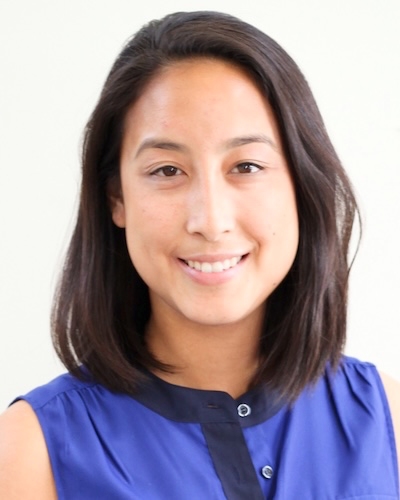
It’s More Fun in the Philippines! ⟩
March 21, 2017, by Jessica
Externships International What are OS/OT?
Hey everyone! I’m back from my three-week absence and I’d love to share what I’ve been up to. As Raisa mentioned in her last post, students in their 2nd year of the Entry-Level Master’s program and the Post-Professional Master’s program plan their own two-week externship experience to engage in during the middle of the Leadership Capstone course. What’s great is that the externship happens right before spring break, so students are able to either continue on in their externship or travel for the full 3 weeks! For my externship, me and 4 other students decided to volunteer with the EN/Ability Project in the Philippines, building adaptive chairs out of cardboard for children with disabilities in a rural village of Cebu.
The EN/Ability Project is an outreach program that provides therapeutic services to underserved children with disabilities in the rural provinces of Cebu. On this volunteer trip, we led a group of volunteers and therapists in building adaptive seating for children with disabilities in Borbon. The children that were identified to benefit from the adaptive chairs have disabilities that impact their ability to participate in fundamental activities in their daily lives, such as feeding, playing, and interacting with their families. We created about 30 individualized chairs, based on the designs of the Adaptive Design Association, an organization that specializes in creating customized seating from low-cost, recyclable materials. We received a training from the founder of the organization, Apple Sepulveda, before we left for the trip. (She also happens to be in the OTD program currently!) This was the first time the EN/Ability Project decided to do this type of program, so it was exciting to be able to start off a new tradition for them.
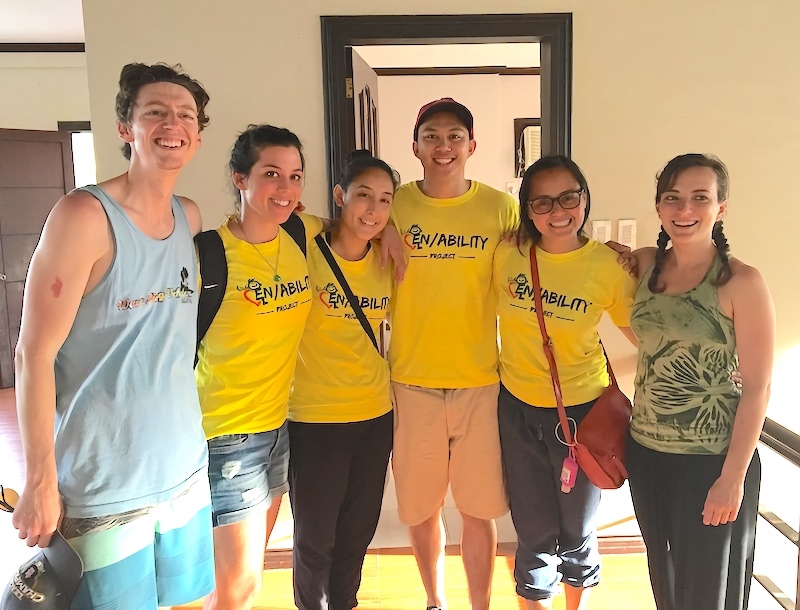
USC OT externs with our supervisor, Apple
We met up with around 30 volunteers in Cebu City, and from there we were transported by bus around 2-3 hours north to a small town called Borbon to meet the children we would be assessing and measuring. The volunteer group was a mix of people from different backgrounds and disciplines; some OTs, PTs, and other local volunteers who just wanted to help out! The USC students served as team leaders, and our teams were composed 1-2 other local volunteers. Each team was matched up with 1-2 children, who we met and measured on that first day. I was really glad I had a local volunteer on my team who spoke Cebuano, the language of this region, as the families we met did not speak much English.
After we met the children and families, we headed to our vacation house that all of the volunteers would be staying in for the duration of the program. Lemme tell you . . . that house was awesome! It was three-stories, large enough to house all 30 volunteers. The house was super spacious, with enough room for all of us to build our chairs. There was even a large lap pool and basketball court in the backyard, with beach access right behind the property! The great thing about this project is that the organizers wanted to make sure that there was a good balance of work and fun, in order to make the experience more enjoyable for everyone.

Vacation house

Backyard of vacation house
The first night we took all of the donated cardboard and layered them with glue, to serve as the foundation for our chair building the next few days. In the US, we have much thicker, sturdier cardboard. However in the Philippines, they only have 1-ply cardboard which is much thinner, so we needed to layer about 4 sheets of cardboard in order to have a study base. We also spent some time on our team planning out and sketching our designs. The next day, the building began! With our measurements in hand, lots of cardboard, glue, and power tools, we spent the next few days focused on creating the chairs. I knew it was going to be a lot of hard work going into it, but it was much more labor intensive than I even anticipated. (Plus, the humidity of the Philippines didn’t help much either.) After 30+ hours of labor, all of the hard work was worth it once we saw our finished products and the smiles on the children and families’ faces.
From this . . .

We made this . . .
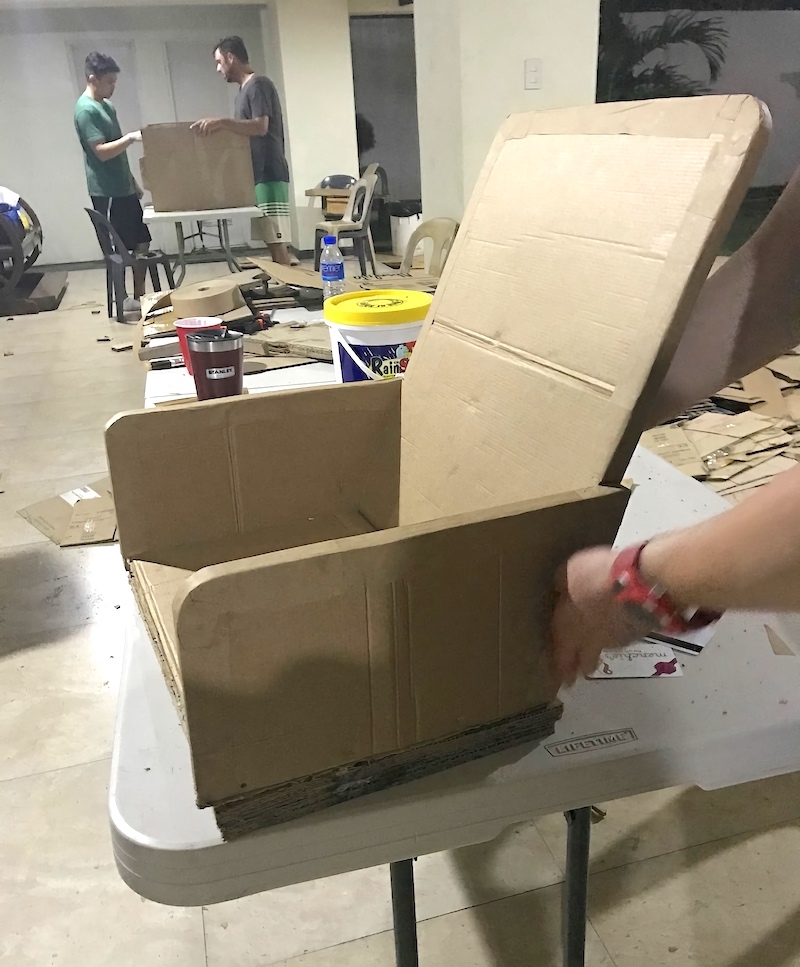
Which became this!
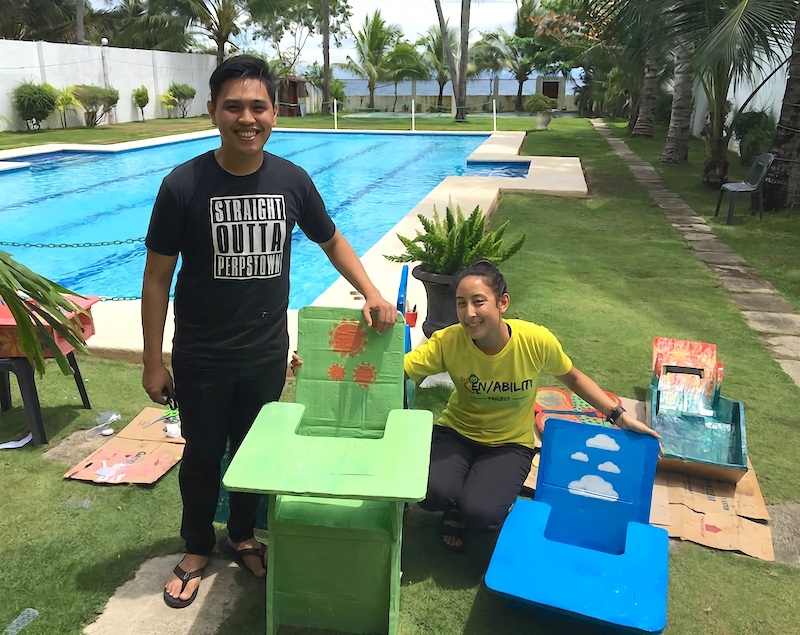
Me and my teammate and our finished chairs
Hopefully the children and families are happy with their new chairs. 😊
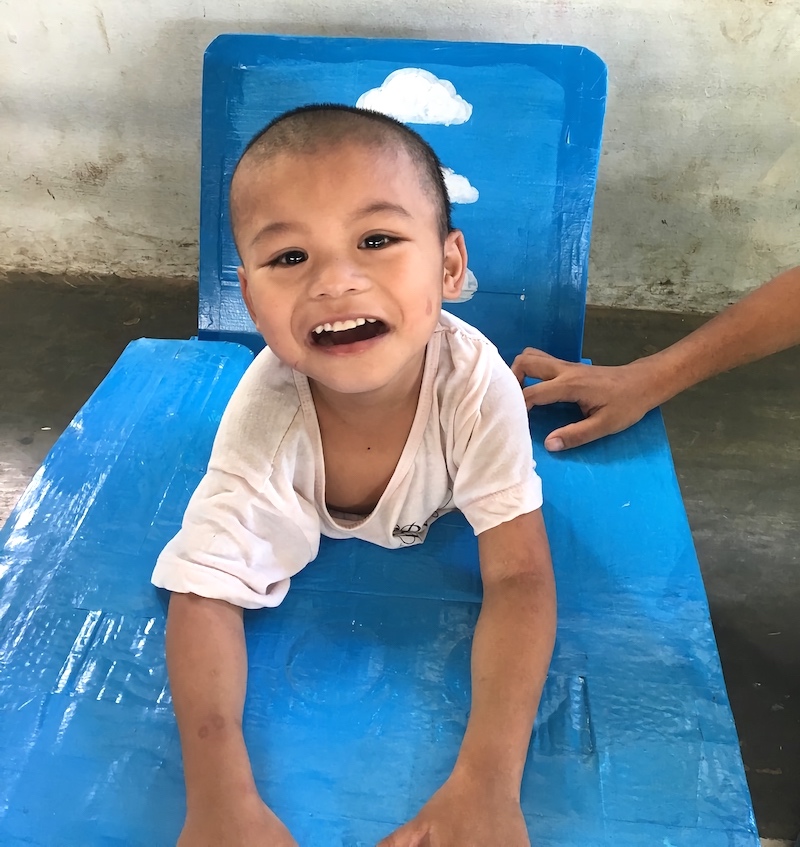
Mark with his new chair
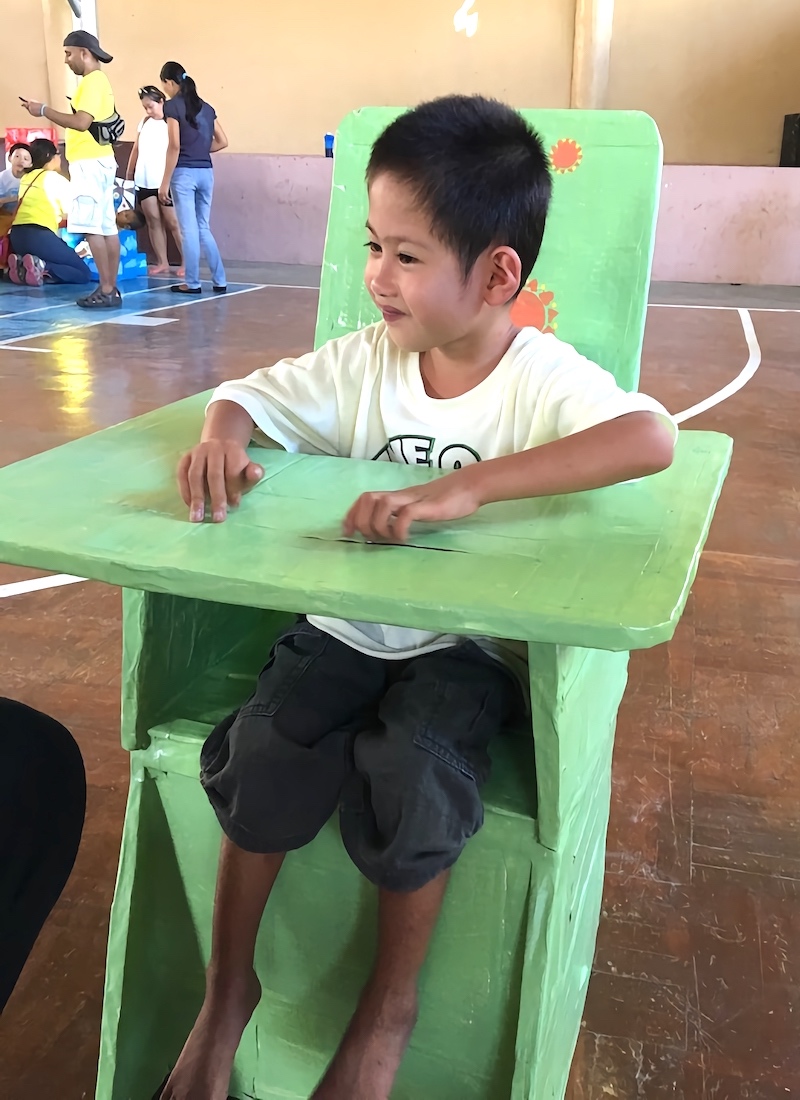
Kirby with his new chair
One of the best parts of this experience was not only meeting the children and building the chairs, but also getting meet and collaborate with OTs from the Philippines and creating new friendships. As visitors, we felt so welcomed by all of the local volunteers. We even karaoked and toured around the island with some of them afterwards!
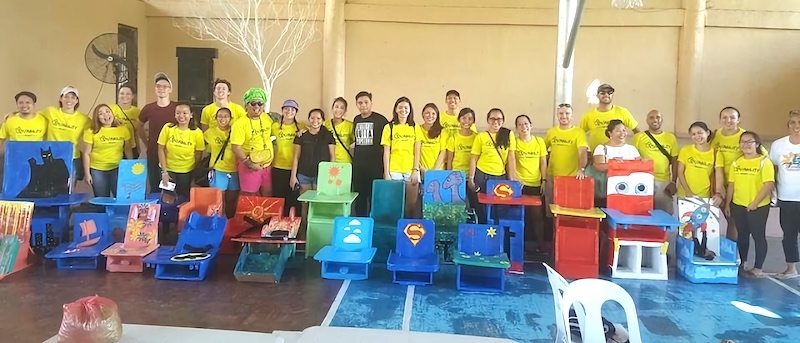
All the EN/Ability project volunteers
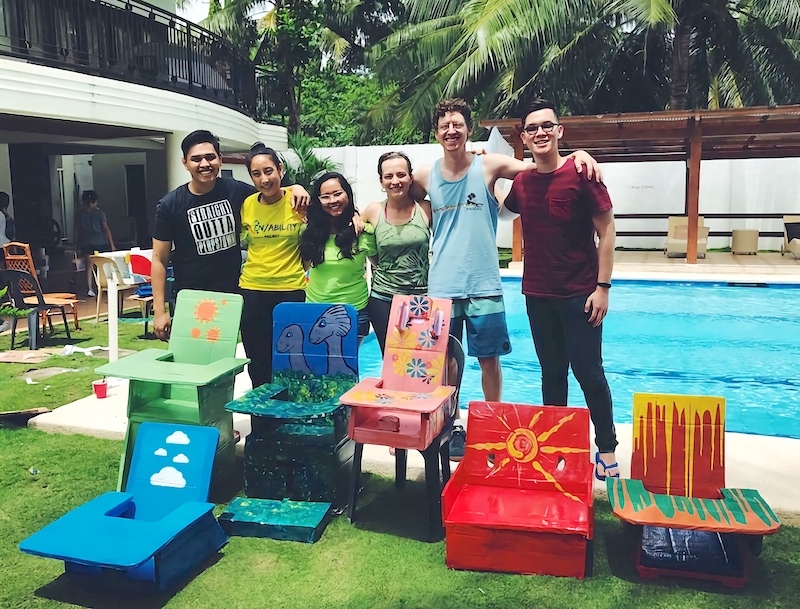
With our new OT friends!
Overall, I had such an amazing externship experience and visit to the Philippines — I would do it all again in a heartbeat! Check out this video, made by the EN/Ability Project, that highlights our whole experience!
⋯

Autism in the Community ⟩
February 13, 2017, by Kimmy
Classes Community What are OS/OT?
As prior blog posts have mentioned, the final semester of the program is full of unique electives. These classes range from lecture-based courses in advanced practice areas to research involvement to hands-on experiential opportunities. After reading over all of the course descriptions, I was most excited about this last category, which includes a class called Autism in the Community.
Despite keeping an open mind throughout the program, I have always wanted to work in pediatrics. I initially became interested in occupational therapy after learning about the role in schools helping children with developmental disabilities. Growing up, I used to visit the special education classroom during lunch to play games with the students in the class. It was a great way to relax during the day and become friends with new people!
Now, as I finish up my Master’s degree, I have found myself coming full circle. This past Friday, I visited a nonpublic school for children on the autism spectrum and spent two hours bonding with them over board games. To be clear, I played Connect 4 for graduate course credit — living the dream! Seriously, I had so much fun meeting this class of amazing students. Now that we have met the students, my classmates and I will each be assigned our own buddy from the special education classroom. In the coming weeks, we will take weekly field trips with our buddies to the California Science Center. Not only do these trips allow our buddies to learn and apply their science curriculum, but being in the community provides valuable opportunities to practice social skills and regulation. Reciprocally, my classmates and I gain hands-on experience working with adolescents with autism — in pretty much the most fun way possible. 😊
⋯
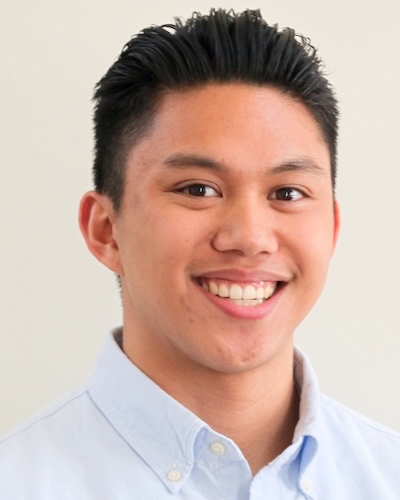
Choosing Your Area of Practice ⟩
February 10, 2017, by Erwin
Classes What are OS/OT?
Many students come into the program expecting to practice in a specific area. And if you’re like 90% of most prospective occupational therapy students, it’d be a safe guess that you want to work in pediatrics. That was definitely me when I was applying to occupational therapy schools. I was so gung-ho about working with children; I did all my volunteer hours in a pediatric clinic and also worked with children with special needs. I was all-in on working with pediatrics . . . that is until I went to USC.
A misconception that some students have is that the program will train you to be an occupational therapists in a specific area of interest. However, that is not the case. USC, and all other occupational therapy programs, train you as a generalist. Thus, when you graduate, you are qualified to work in any area of occupational therapy. Here at USC, we have 3 practice immersions to assist students in developing mastery over the various domains of OT. Those immersions are adult rehabilitation, mental health, and pediatrics. It’s awesome because you get exposed to other areas of occupational therapy that you would have never thought you’d be interested in. In fact, the majority of students actually come into the program wanting to practice in one area, and end up loving something else by graduation!
While I thought I wanted to work in pediatrics when I started the program, today, I’m torn between adult rehabilitation and working in adolescent mental health. I enjoy the pace and the work that is done in physical rehabilitation, but I also enjoy the connections I made with clients during my fieldwork in adolescent mental health. It’s funny because I was so intimidated of both areas before entering the program, but now I can’t see myself doing anything else! Occupational therapy is such a wonderful and diverse profession that sometimes it’s hard to choose one area to work in. But on the flip-side, if you ever feel tired of working in one area, you can always mix it up and enter another area of practice!
⋯
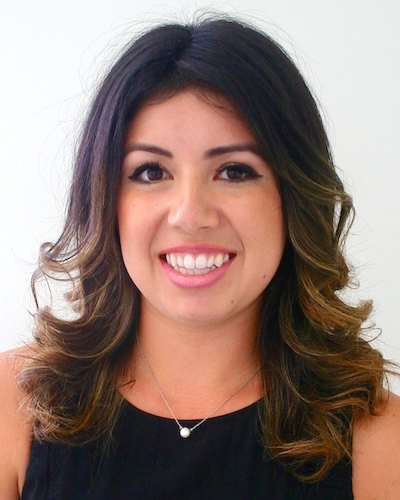
A visit to a OS minor course! ⟩
January 25, 2017, by Alyssa
Classes What are OS/OT?
Last week, I had the chance to visit Dr. Olga Solomon’s Occupational Science (OS) minor course: Occupational Foundations of Human-Animal Interaction! During my visit, I was able to learn how interacting with an animal can benefit your overall health and wellness. I mean . . . who would have thought that some quality time with a cute creature can boost your social-emotional, physiological, and physical well-being?! In addition to learning more about animal-assisted therapy, I also had the opportunity to meet Dr. Catherine Dorr, the executive director of Assistance Dogs International and an occupational therapist OTD, OTR/L who facilitates canine interventions within her clinical practice. During this classroom visit, I met Ford, who is pictured below with me. Dr. Dorr shared her experiences with working with Ford and her passion for training other canines to serve as facility dogs.
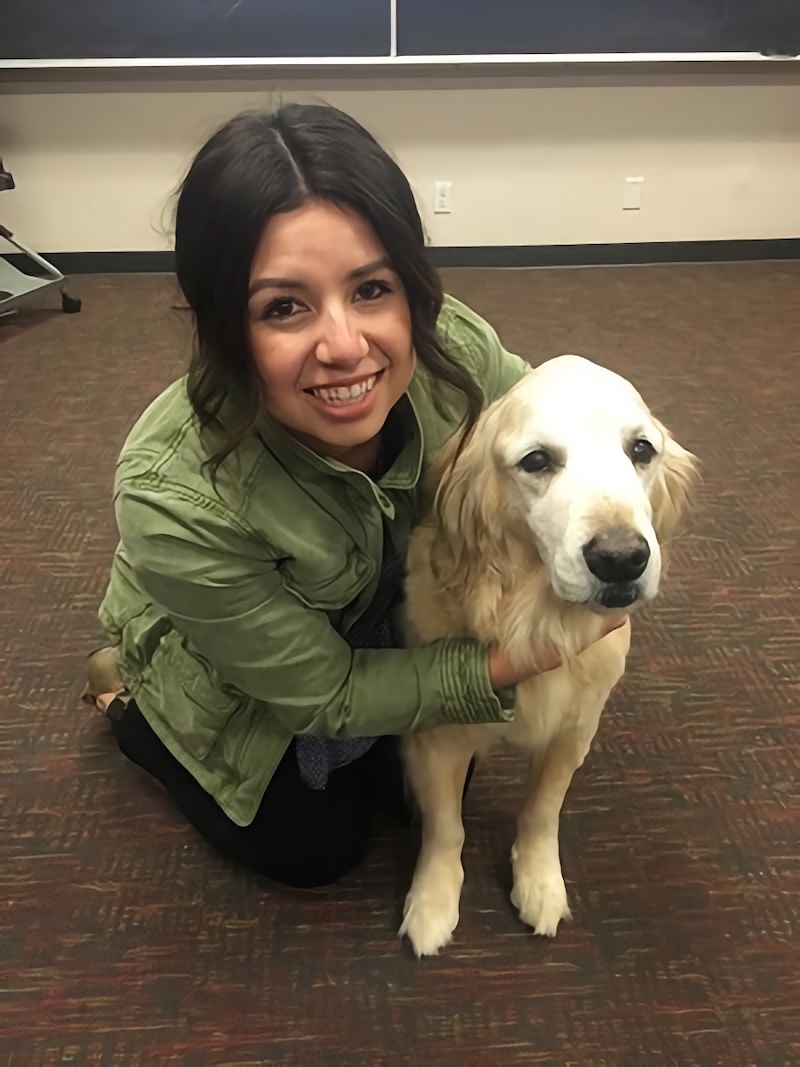
The famous Ford himself!
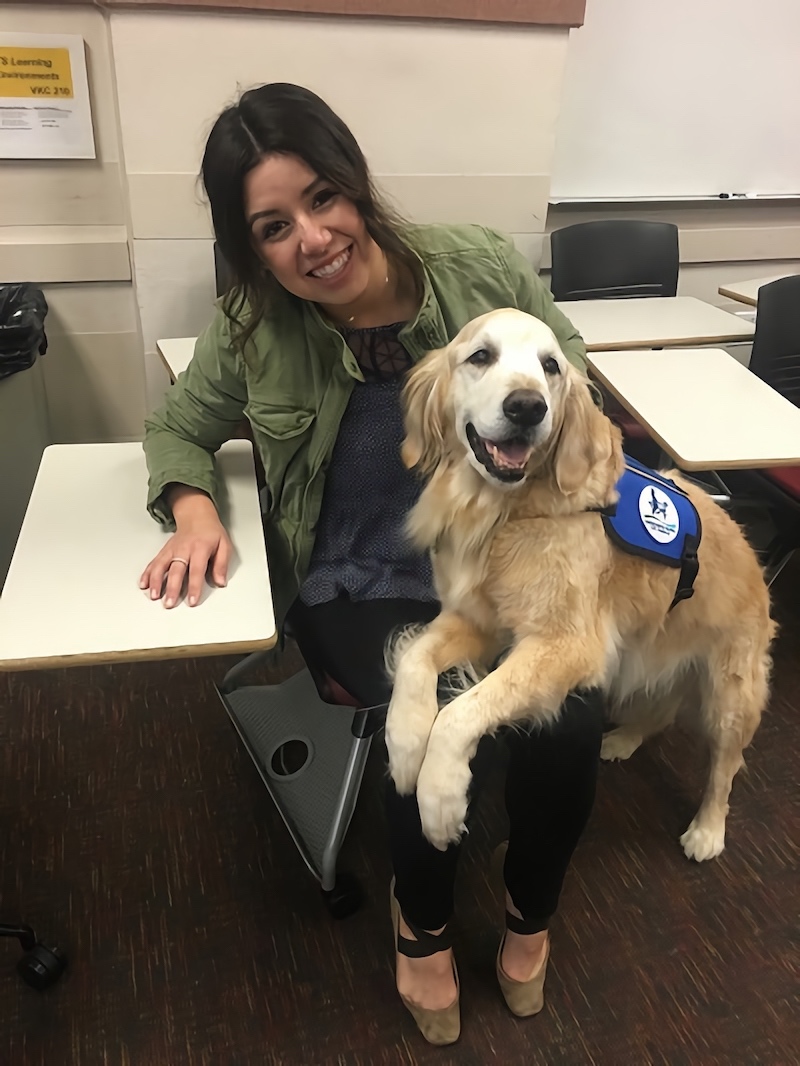
Ford and I posing for our close-up!
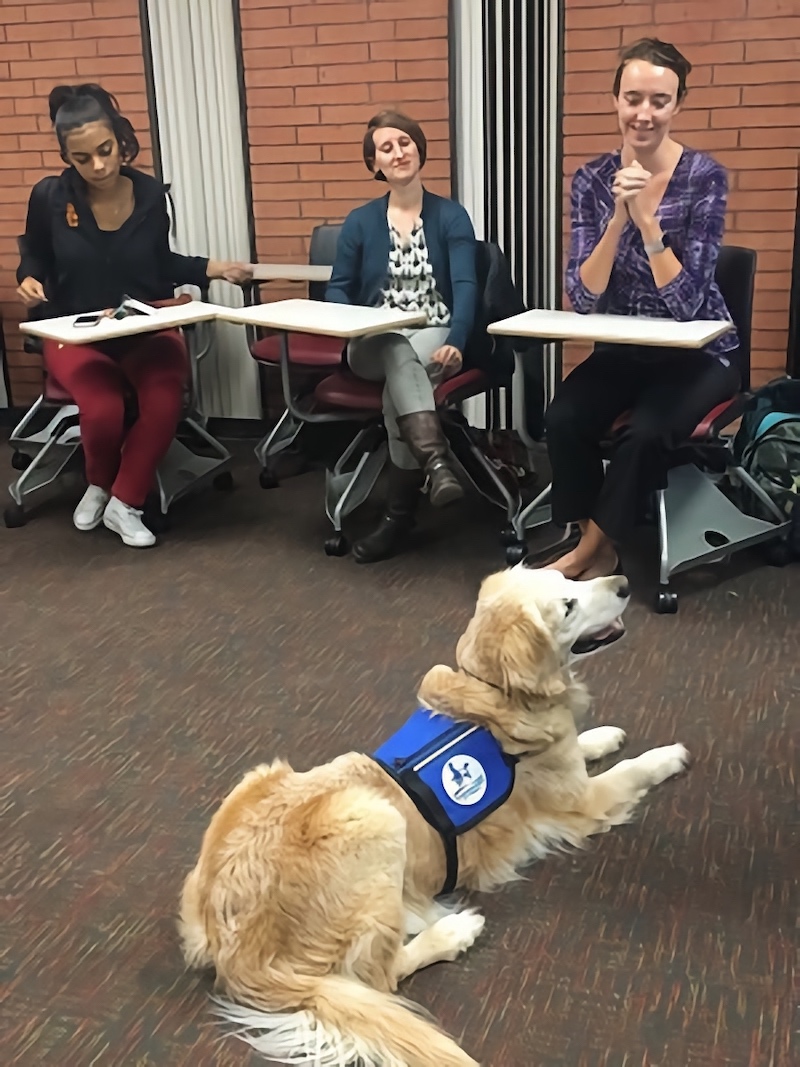
USC undergraduate students and Ford
In addition, the Office for Wellness and Health Promotion (OWHP) at USC has introduced its newest member, Professor Beau. Professor Beau is unlike other canines; he is the first, full-time wellness dog that USC has ever had! Fight on!
⋯

Pre-OT Me ⟩
January 23, 2017, by Kimmy
Admissions What are OS/OT?
Before deciding to enter a graduate program, you may have asked yourself, “Can I be an OT?” I may not know you too well yet, but I have a feeling the answer is yes! While a Master’s degree in occupational therapy is required to practice, many professionals arrive at this destination from vastly different origins.
My path was a bit more direct as I entered USC directly in the Bachelor’s to Master’s program. However, in the effort to gain a well-rounded undergraduate education, I also pursued a major in psychology and a minor in nutrition & health promotion. By studying these diverse fields, I feel enabled to blend multiple perspectives to inform my future practice as an occupational therapist.
Occupational therapy stresses the importance of client-centered practice and treating the whole person. Because each OT exudes a unique therapeutic style, one’s practice can be informed by his or her background. An OT with a background in business might differ from one who studied sociology, but they can both provide valuable treatment for their clients. Further, these varied perspectives allow therapists to share knowledge and exchange ideas with each other, which improves therapists’ clinical reasoning and the profession as a whole!
⋯





